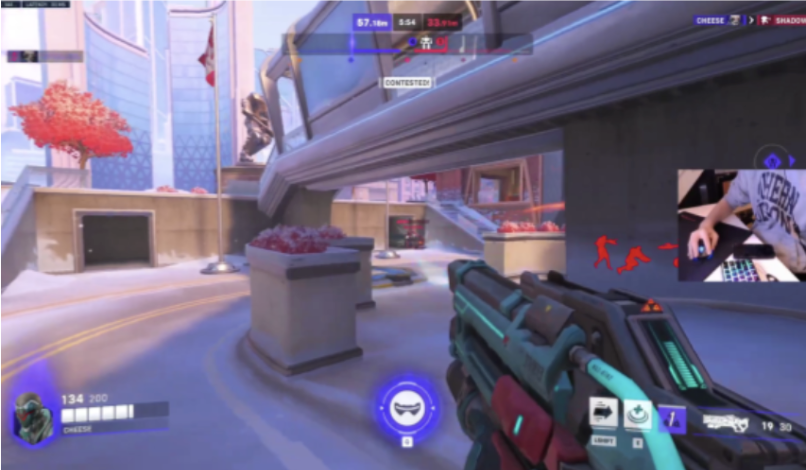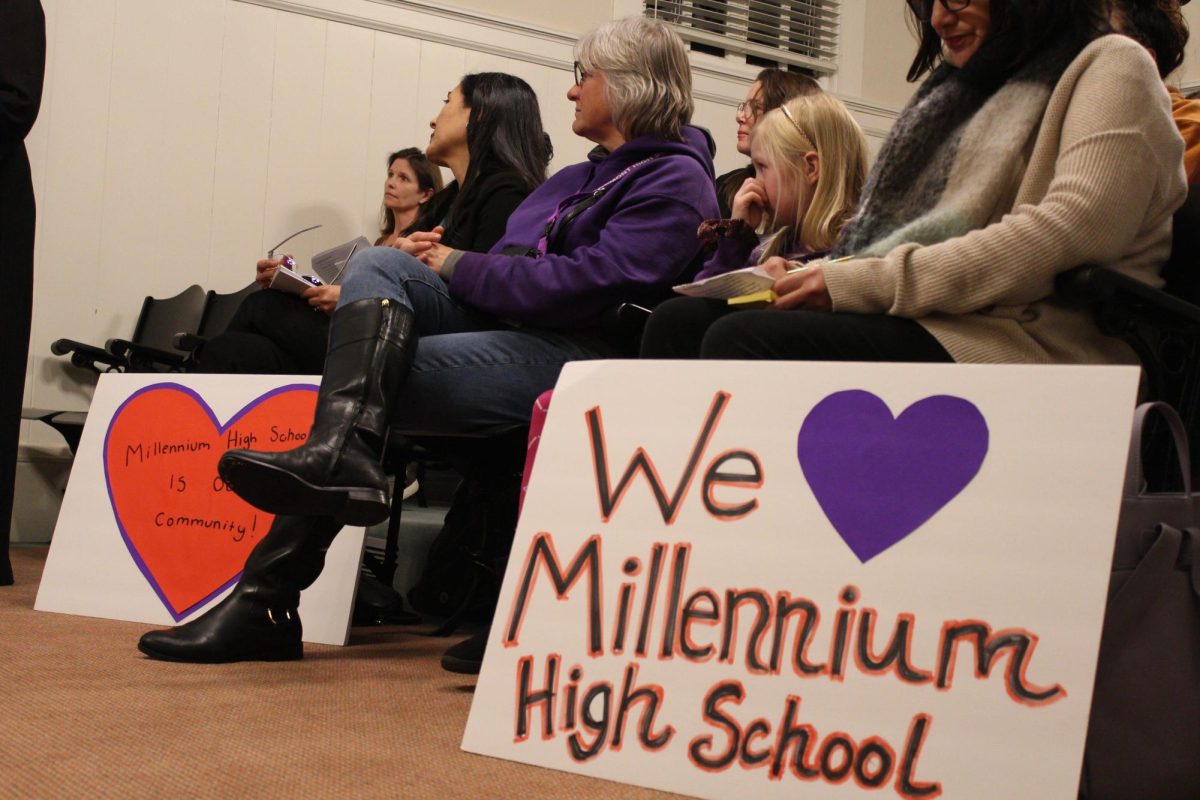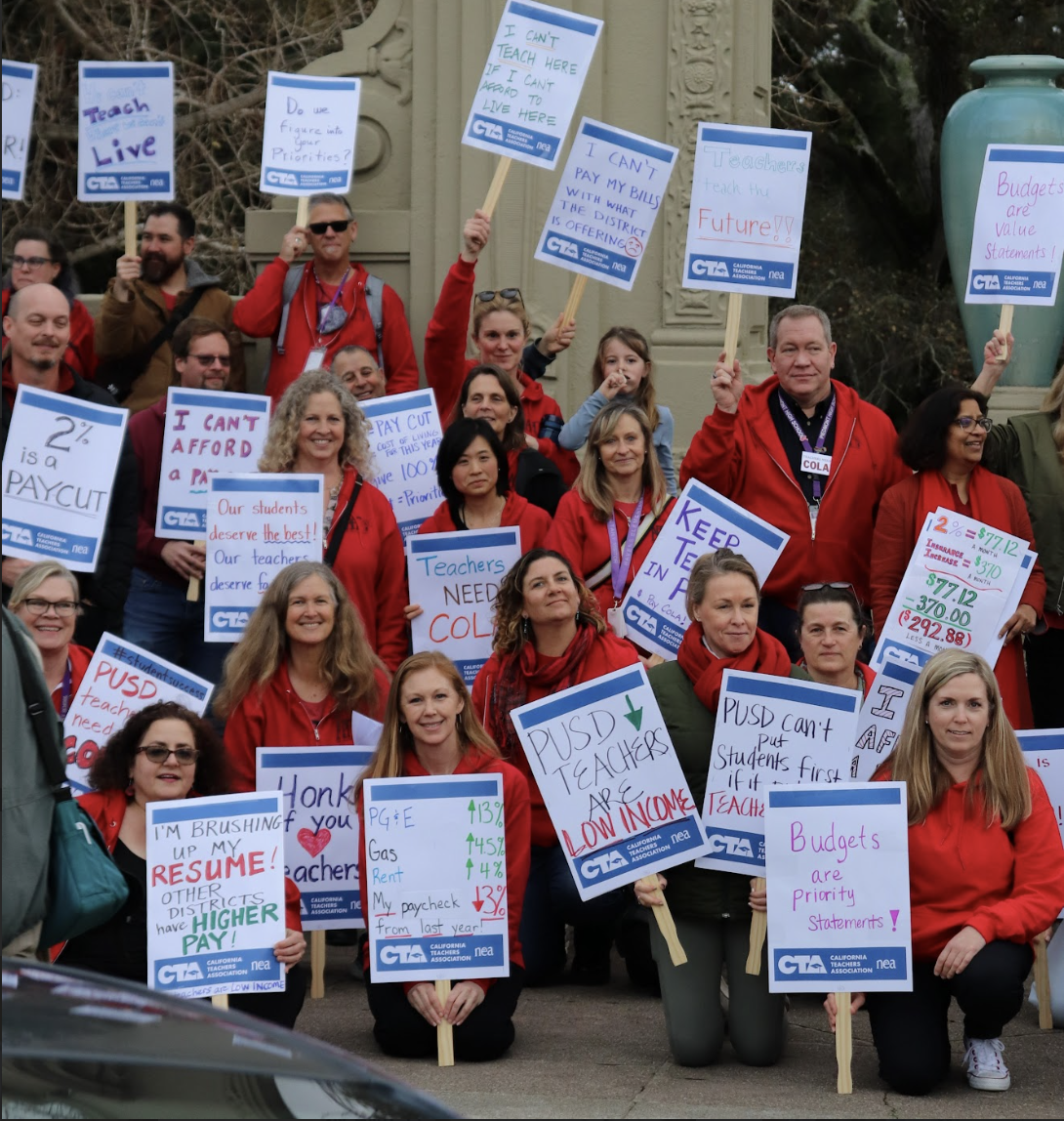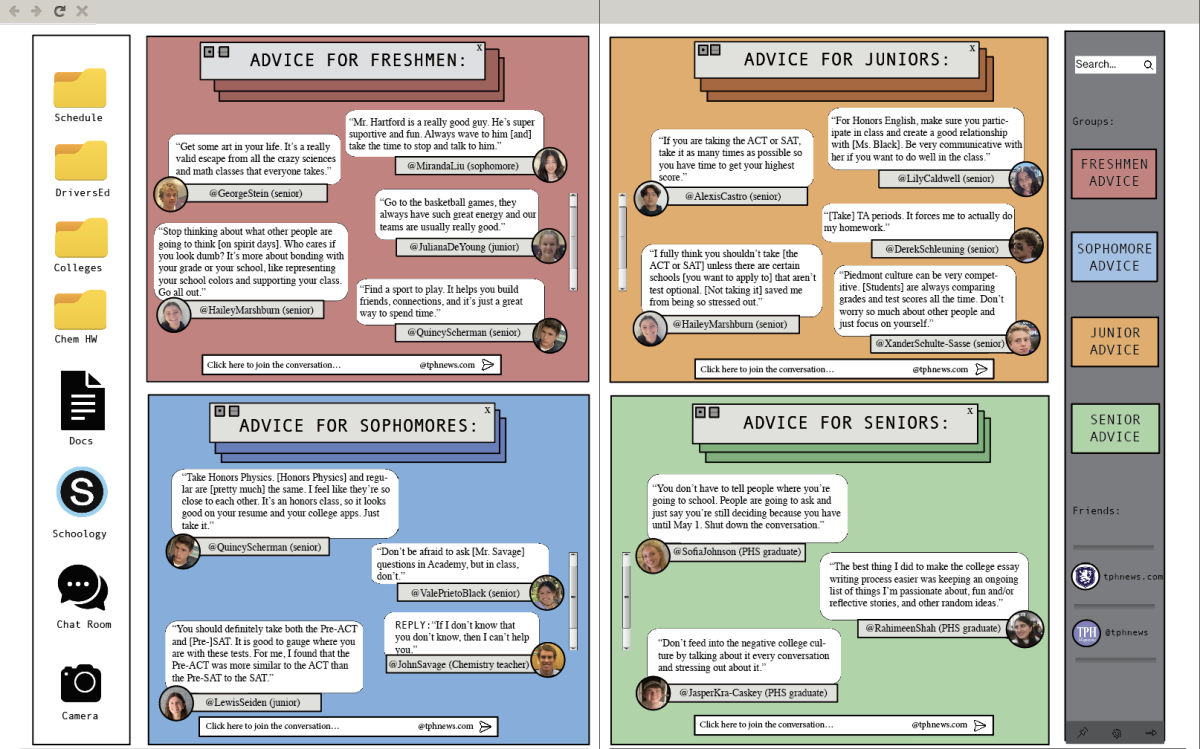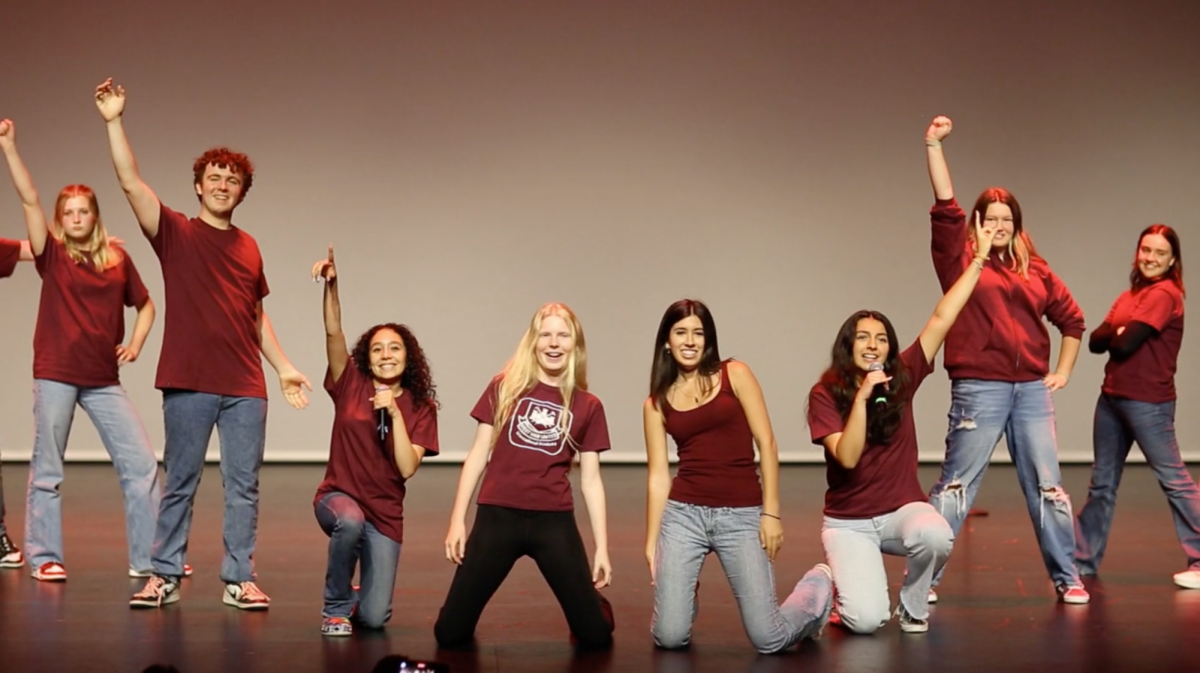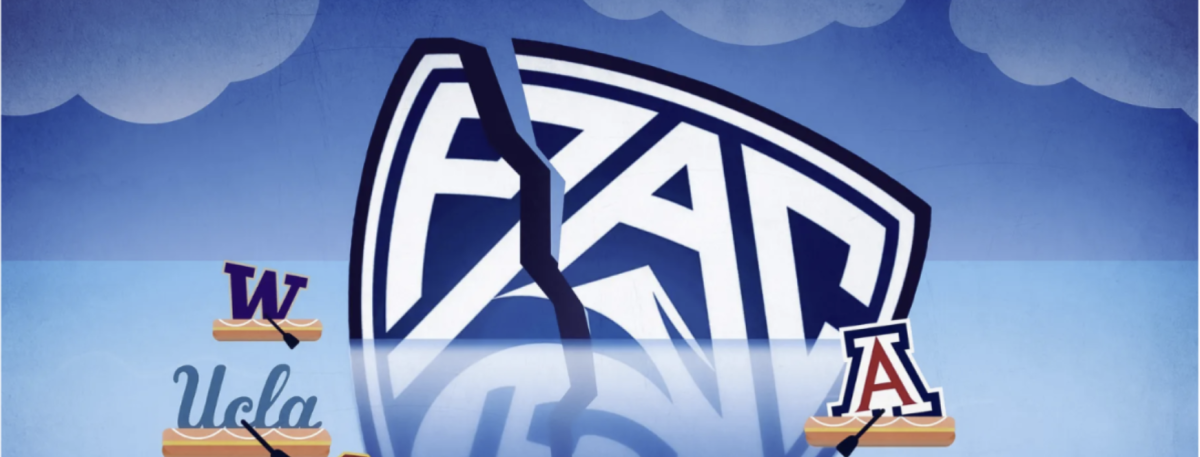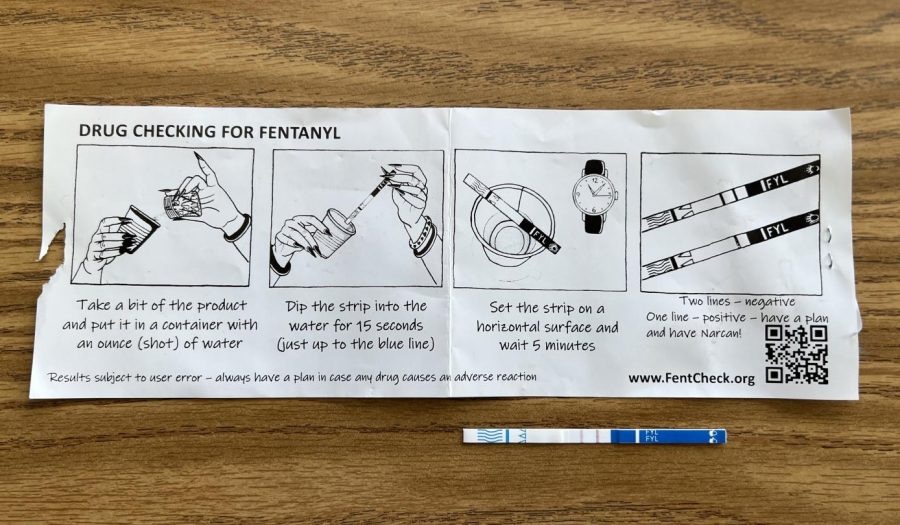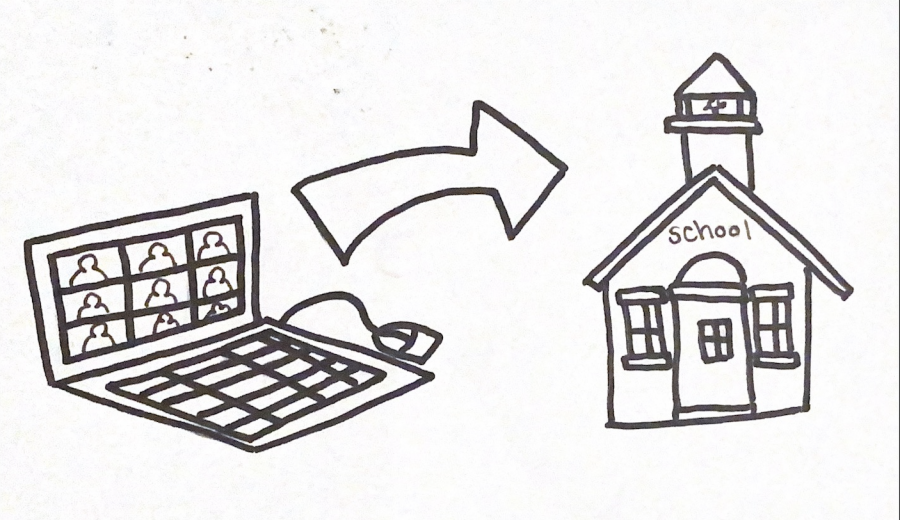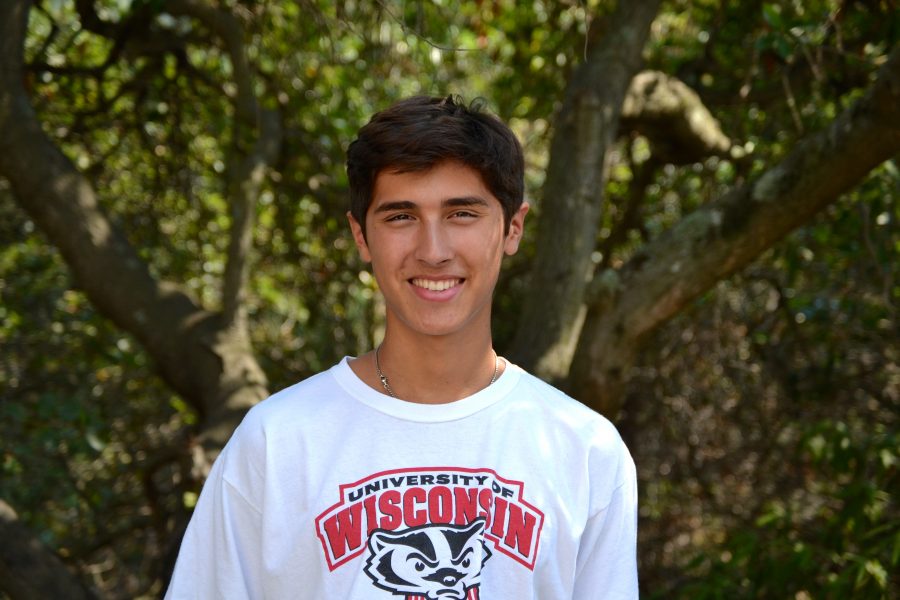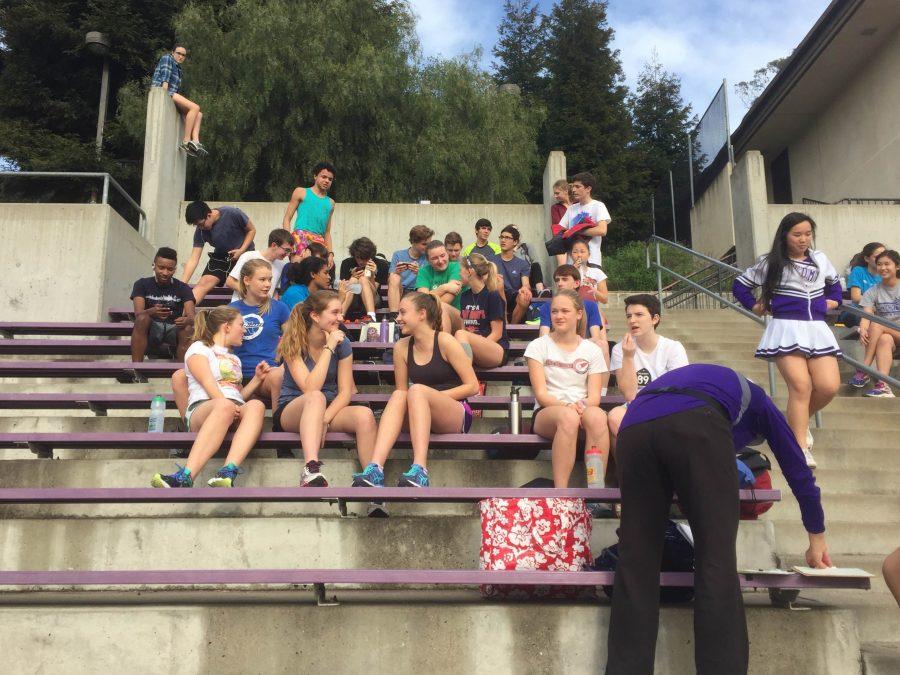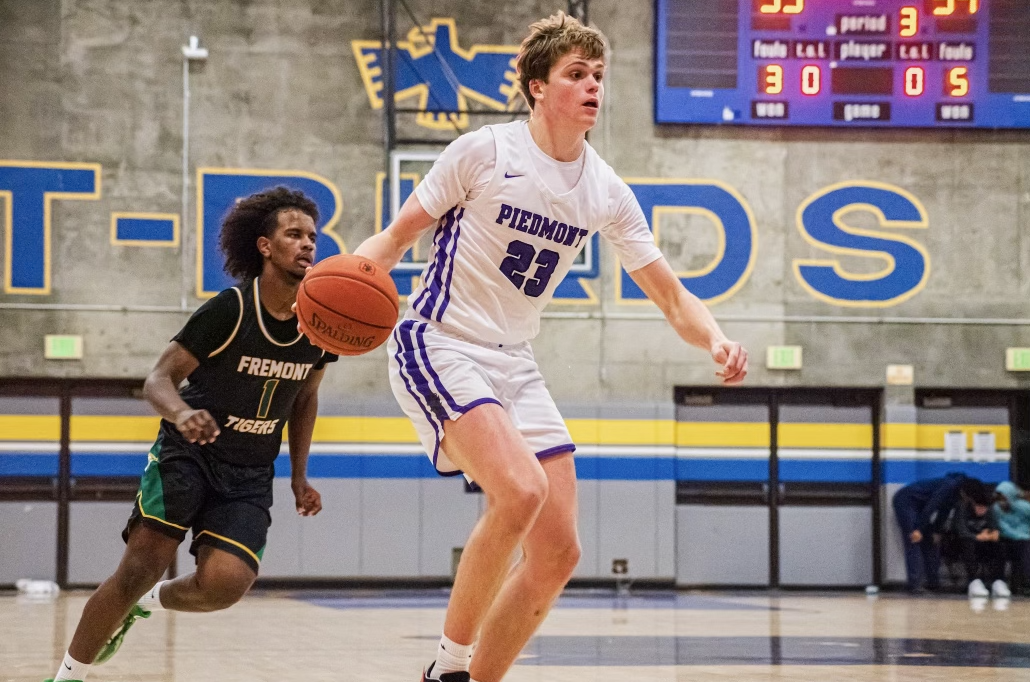He was the only freshman who played fall ball and he felt wronged.
“I was really distraught by it,” said junior Bing Mitchell, who was cut from the JV baseball team as a freshman. “I was a mess.”
For dedicated and sincere players, accepting a coach’s dismissal and understanding the reasons behind it is hard. But for coaches, the decisionmaking process can feel just as vexing.
“I hate cutting kids,” men’s JV basketball coach Ben Spencer said. “If we could keep all of them and benefit all of them it would be fantastic.”
Key qualities in potential players include mastery of basic skills, competitiveness, work ethic and coachability, said men’s varsity basketball coach Chris Lavdiotis, who has been a Piedmont coach for 23 years. To form a cohesive team, versatility in different positions among individual athletes is an additional consideration. Sounds straightforward enough, but considerations become complicated when hordes of players at similar levels arrive.
“Some people are great at drills but can’t play the game,” Lavdiotis said. “Some guys are not so good — they’re terrible at the drills — but boy, get them into a team situation and they’ll thrive. You just have to trust your evaluation instincts on that.”
Quite a bit of success in terms of tryouts has come the way of senior Tess Olcott, who played varsity women’s tennis, soccer and softball her freshman year. Since then, she’s continued with tennis and soccer.
Olcott said that for tennis, her selling point wasn’t the skill she brought along, but rather, the mindset she demonstrated. She realized this when her coaches discussed her strengths with her as the first season drew to a close.
“Regardless of my position on the team, I worked hard and I listened to what they would say and I improved — and that’s what they wanted me to do,” Olcott said.
With the potential growth of individuals in mind, coaches should try to place upperclassmen on varsity, Olcott said.
“The [hypothetical] freshman’s going to be appreciative of the time they get and grow on that JV team and grow in confidence, so that when they get to that varsity level they can really shine,” Olcott said. “It’s a lot harder for a junior or senior to get excited about playing on a JV team when they know that they could be pushing themselves harder.”
Coaches should hear out opinions from players about the roster, Olcott said, while acknowledging the difficulty of her suggestion.
“If captains or the older players on the team are confident that a player will either make the experience way better or make the experience not as great, I think that that should be something that the coach takes into consideration,” Olcott said.
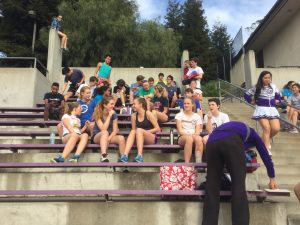 Coaches should remember to consider the dynamics within a team when choosing their players, senior Maggie White said, as she felt she brought a certain spirit to her cross country team that would not have existed so strongly otherwise.
Coaches should remember to consider the dynamics within a team when choosing their players, senior Maggie White said, as she felt she brought a certain spirit to her cross country team that would not have existed so strongly otherwise.
When the decision’s done and dusted, the most emotional chapter comes: the decisions notification.
“Try to do it always in person and give a reason why, especially in the younger levels,” Lavdiotis said.
Athletes with low chances of making a team could even benefit from a hint earlier on in the tryout process so that they can be better prepared for the outcome, Mitchell said.
The opportunity for conversation helped White, whose cross country and track coach tried to convince her to leave twice in her underclassman years: the first time on cross country for a late medical form and the second time on track for an untreated injured hip, White said.
“She hadn’t really had very much personal experience with me. We hadn’t really spent that much time together yet,” White said.
For soccer she never got a conversation, only an email of her rejection sophomore year. While the impersonal nature of that notification email didn’t unnerve White, she said she was glad that she had the chance to advocate for her spot on cross country.
“I feel like I deserved her trust,” White said. “Basically my message to her was, if I didn’t want to be here I wouldn’t have to be here, so I’m here. Let me be here.”
White continued on the teams after communicating her dedication to her coach, became captain of the varsity women’s cross country team as a senior and traveled to the California Interscholastic Federation Cross Country State Championships.
For a real plot twist, add in the politics parents may attempt to stir into coaches’ decisionmaking processes. To thwart such complications, Lavdiotis said that his team tries to use transparency and follow the rules in their student athlete handbook.
“No hidden agenda, no grudges,” Lavdiotis said. “We identify their roles early on and how we see their roles and ask them how they see their roles.”
The final chapter for rejected athletes is recovery. Mitchell’s coach advised that he join a club baseball team, which he did with the blessing of his parents. He also joined the men’s JV tennis team.
“Playing tennis, at least for me, was really really good for me,” Mitchell said. “Coming out of a failure I was able to find a success.”
Junior Willy Matsuno, who was cut from men’s JV baseball the same year as Mitchell, turned to playing football and hasn’t tried out for baseball since. The results of the tryouts didn’t affect his friendships with his previous baseball teammates very much, he said.
“I’m probably a lot more close with the people I play football with and lift with outside of football,” Matsuno said.
The epilogue to this saga would have to be the lasting effect getting cut from a team can have on one’s life. White holds a more positive view of her close shave with rejection.
“I think that my story’s pretty funny in general. I totally can laugh at myself in the experience,” White said. “Stick with it because even though you might not be the best and you might not really have the trust of the coach, everyone’s still going to have a great time on the [cross country and track] team because everyone’s really supportive in general.”
For players who get cut, Mitchell recommends that they expect to feel bad for a day or two, but move on and find another activity.
If committed to the sport in question, Olcott recommended that cut athletes contact coaches to discuss what they could improve upon.
Lavdiotis said that perseverance favors those who face rejection from a sports team, recalling a 2003 graduate with a hearing disability who got cut from the 7th grade A team but then worked his way to becoming a captain of the varsity men’s team his senior year at PHS.
“[Have] determination to show us that we were wrong,” Lavdiotis said.




